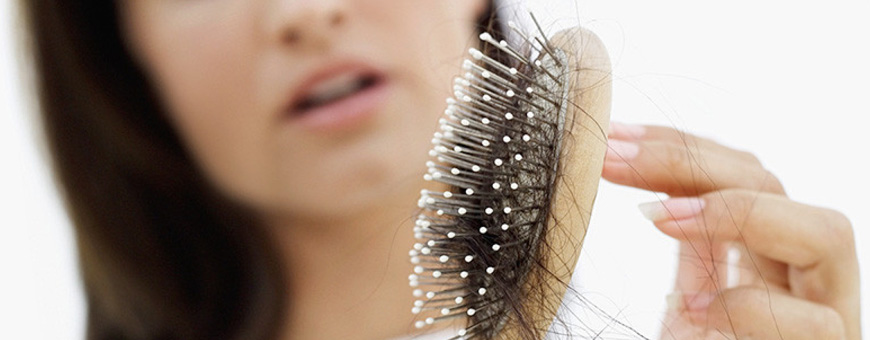What does your hair say about your health?
By Prof. Dr. Soner Tatlidede 2019-07-26

Hair and health problems are two concepts very related. In fact, what your hair can tell you about your health is much more than you think. Do you have dry, dull hair and split ends? These widespread hair problems are usually signs of health problems that, at the same time, can also provoke a bigger hair loss; in the case of a woman, if the origin of the problem is not found she could end having to get a female hair transplant in Turkey.
A lot can be concluded about a person just by looking at their hairs, and it is not limited to just the colour, cut or style of the hair. Forensic specialists have used hair samples as a proof of DNA for a long time. Apart from laboratory research, you can find out many things about your general health situation, like how much you are stressed and what kind of eating habits you have- just by looking at your hair. Let´s see then some health tips for hair loss.
Do you have hair shedding?
If you are losing so much hair every time you brush your hair or run your fingers through it, this could mean that you are having nutrition problems. In general, you may have iron deficiency if you are experiencing these hair problems. Some drugs such as antidepressants and birth control medications mention hair loss as one of its side effects, but usually it is temporary.
If your hair loss is severe, it may be an alopecia triggered by stress, metabolic or endocrine problems. We may characterize hair loss as a reaction of body to the stress. Many women lose their hair after having a baby; this can be a traumatic condition on the body and can prevent hair follicles from growing.
As we said before, hair and health are intimately linked, so hair loss is not an issue to be underestimated. With a detailed evaluation, the patient’s story should be listened and the underlying reasons of hair loss must be examined.
Do you have split ends?
From time to time, all of us have broken and split ends. The overuse of heat-related hair styling tools and chemical products in general is causing these problems. However, if your hair is severely dry or weak, it is recommended to see a doctor.
The underlying cause in people suffering from permanent dryness problems in their hair is thyroid abnormalities. A blood test is recommended to control both thyroid and iron levels. Almost 35% of premenopausal women have low iron levels, and 15 % of women have thyroid abnormalities that could lead to having hair problems.
Dull hair?
If your hair, which normally looks fairly bright, starts to get dull and there is no abnormality in your blood values, this may be a sign of an unhealthy eating habit. In some women, hair may become dull and worn due to nutritional problems, and vitamin levels should be considered in such cases.
Take into account that hair is consisted of a protein called keratin. If your diet does not contain enough protein, this could make your hair really weak and lean.
Do you have dandruff problem?
Dandruff is a problem that affects about 50 percent of the world population. However, dandruff is not usually a sign of a health problem. In a recent research, it has been found that the dandruff is not associated with fungi on the scalp, but rather with bacteria. Therefore, maintaining the bacterial balance may be a critical factor in preventing dandruff formation.
Also, if the dandruff colour is yellow and extends towards the face and back of the head, it may be a sign of an inflammatory skin disease called seborrheic dermatitis. Your doctor or dermatologist can prescribe a specific shampoo or topical treatment.
Your hair starts to gray before 40?
Contrary to what is thought, gray hair is not related to stress. When the color-producing cells in your scalp called melanocytes stop producing melanin, the hair turns gray. The process is typically related with aging. If your hair begins to gray before 40, nothing can be done, it’s a genetic issue.
However, there are still promising news: in studies conducted in London, researchers have found out the gene that is responsible for graying, and they state that it might be possible to develop medicines to turn the grayed hair into normal.
Is thick hair a sign of good health?
Many people usually wonder if thick hair is a sign of good health. Scientific studies have shown that any change in your hair´s look, texture or thickness can be a sign of an underlying health condition.
However, normally thick and abundant hair is considered to be a sign of a good health. On the contrary, thinning hair is usually a sign of nutritional deficiencies as lack of iron or some vitamins.
In summary, as you have seen the relation between hair and health problems is very deep; our main tip is therefore that, if you observe any problem in your hair, you should ask your doctor if there is any health condition that should be addressed.








.jpg)
